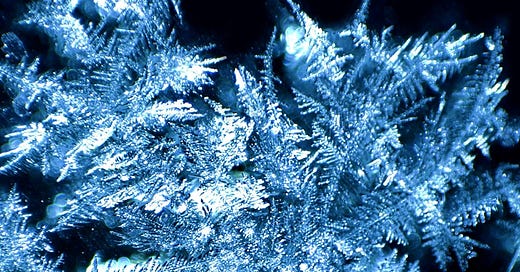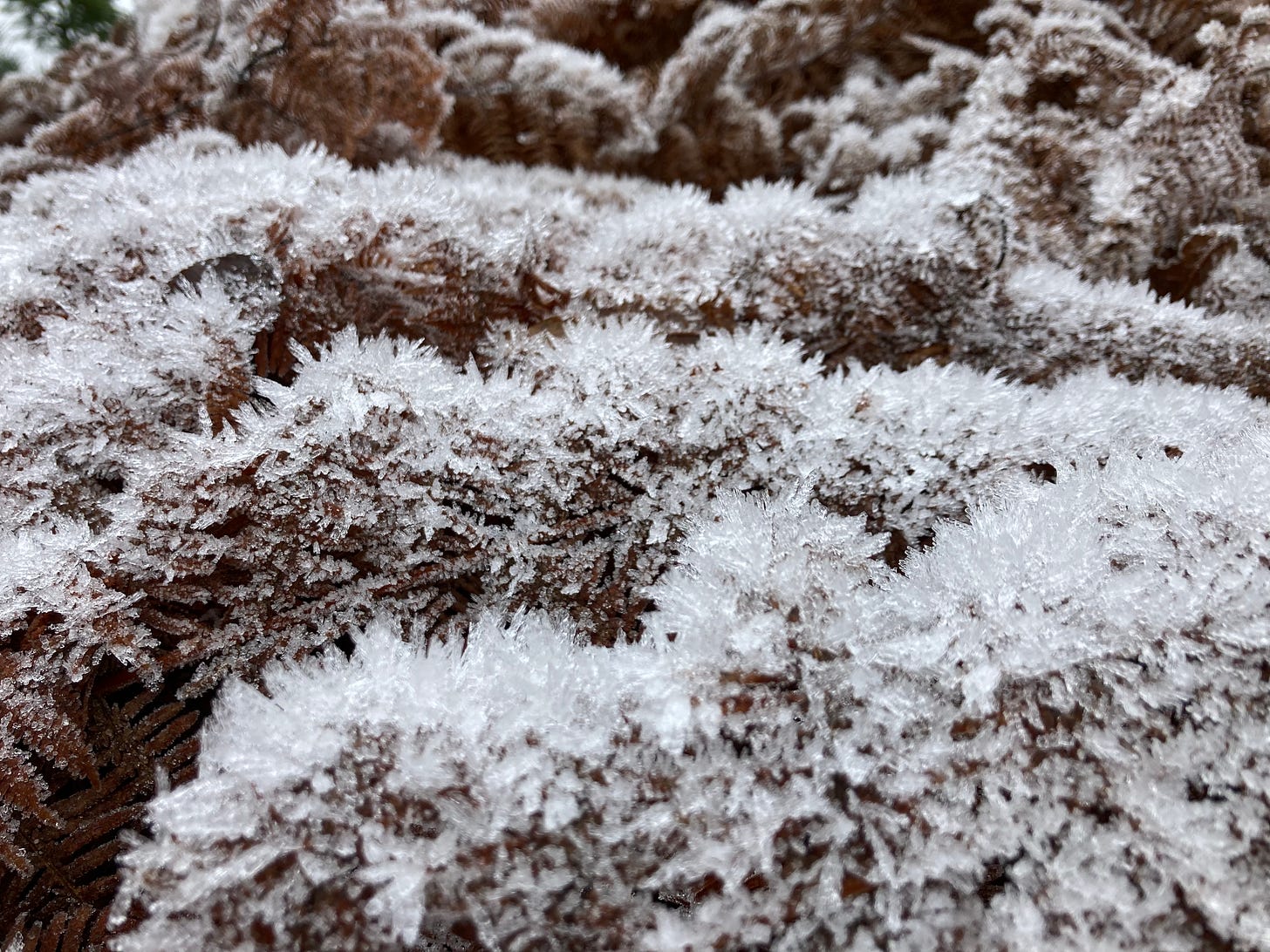Every vein, every hair, every frilled edge, every stem had been outlined by the frost, hard and sharp and silver in the early morning moonlight; grass had been transformed into swords, nettles to weapons, ferns to chainmail and creeping buttercup leaves to shields. It reminded me of December this time last year, when the cold pooled, viscous as frozen vodka, in the valley bottom.
In Petit France, the name we’d given to part of the wood - think sand and pine trees and fat blackberries in autumn - the frost had stitched itself, ice flake by ice flake, into miniature forests that grew along the bracken fronds; the sun, fleeting in the afternoon, pierced by a million minute fractals.
But this December I saw frozen dewdrops for the first time, round and gleaming like pearls, that could be plucked from the leaves, dusted of frost and would lie glistening in the palm of your hand for the briefest of moments.
I went to Cornwall for a few days to work and was treated to a frozen beach, the sand glazed with icing powder, water slick and solid as glass. I stupidly went for a run, and slipped on the ice, landing on my elbow on the cold and unforgiving stones.
The stream had flooded. They were stuck.
Back in the Mendips, the weather had turned, and Jaimie, my husband, called to say that the stream had flooded. The only way to reach our house is along a bridlepath, the West Mendip Way, which bisects our land, as does the stream. Jaimie sounded panicked. Water was flowing over the top of the bridge that led to our house and gushing down the bridlepath. He wasn’t able to leave the house, and he couldn’t get the car out. I was on the beach, without much mobile signal and the call cut out. Again, I’m thrown back to our recent past.
We bought the house in 2017 intending to renovate it. Before the builders moved in, Jaimie emptied the house of our stuff and locked everything up. It was late by the time he finished. I’d been in London, meeting my publishers, and I was on the train on my way home when he called. He was desperate. The stream had flooded the bridlepath. Jasmine, our daughter, was in the car on the drive. They were stuck.
Jaimie had climbed up the hill to find mobile signal to call me but he was cut off and I couldn’t get through to him again. I did the only thing I could think of: I called one of our new neighbours. She wasn’t pleased to hear from me. At a recent Parish Council meeting she’d given an emotional and impassioned speech against our proposed renovations. She was abrupt on the phone and hung up without saying goodbye. But half an hour later she drove her Range Rover through the flood and rescued my husband and daughter. I’m unused to people - particularly people I have had a disagreement with - dropping everything to help.
And now, six years on, our neighbour is always up for a cup of tea, she looks after our dog when I’m running writing workshops and our daughter helps out at her stable every week. She called to check we were okay and later that day, drove her Range Rover through the flood, picked Jasmine up from school and brought her home, safe and dry - although only after Jasmine had fed her horses.
If you’d like to read more, Wilderness: A Search for Belonging, about rewilding and growing up dual heritage in rural Britain, is out on Substack for paid subscribers. Want to read more Wild Notes? They’re here.
Sanjida x
Don’t feel able to subscribe? Perhaps you’d like to buy me a coffee instead?







